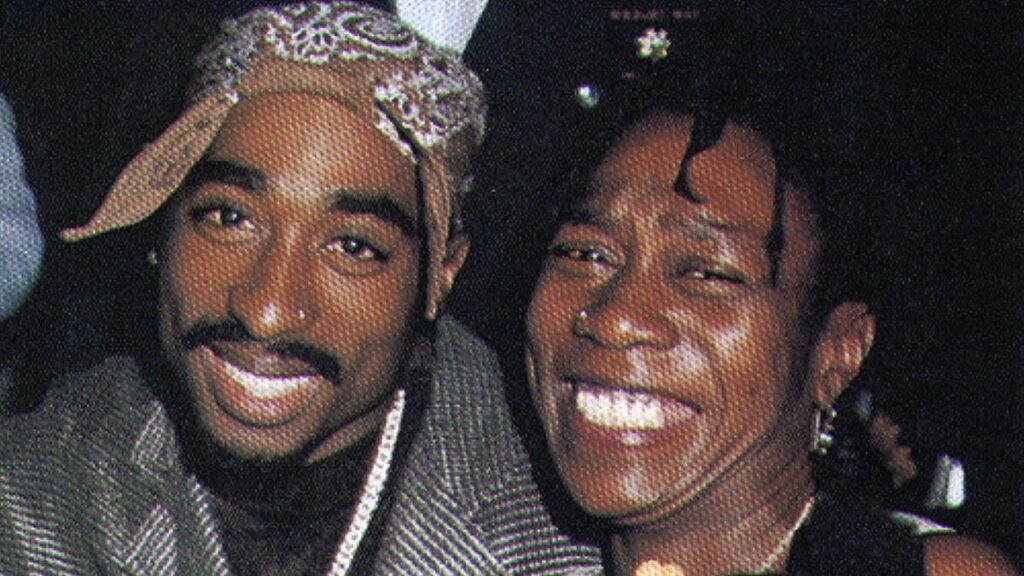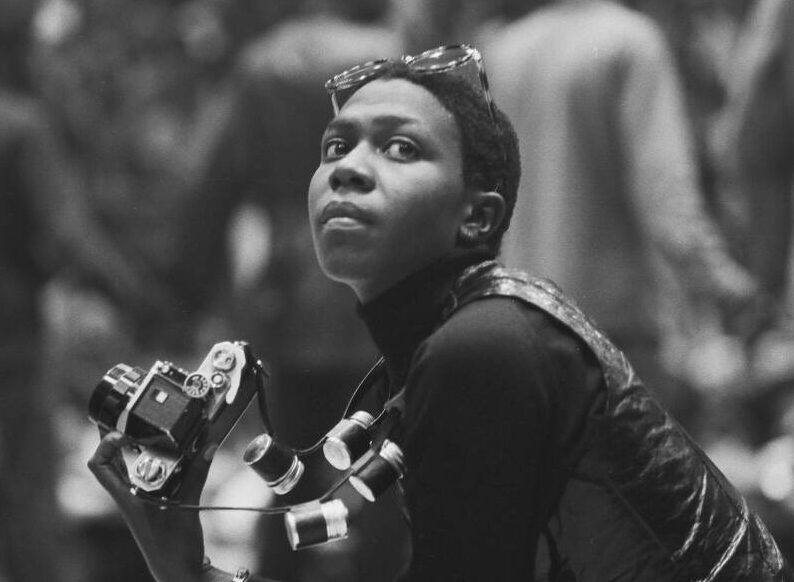Introducing the fierce and influential Afeni Shakur Davis, this American political firebrand was born Alice Faye Williams in 1947 and left an indelible mark on society until her passing in 2016. As a proud member of the Black Panther Party, Afeni fought for racial equality and social justice throughout her life. Perhaps best known as the mother of legendary rapper Tupac Shakur, she was a tireless guardian of his legacy, overseeing his estate and launching initiatives like the Tupac Amaru Shakur Foundation.
Who was Afeni Shakur?
Born as Alice Faye Williams in Lumberton, North Carolina on January 10, 1947, the incredible woman who would later be known as Afeni Shakur faced a tumultuous childhood tainted by her father’s abuse towards her mother. A new beginning awaited her and her older sister, Gloria “Glo” Jean, when they relocated to South Bronx along with their mother, a hardworking factory worker.
Young talent rose to the surface when Williams graced the hallways of Benjamin Franklin Junior High School in the Bronx. With a knack for reading and a flair for the honors list, she swiftly made her mark as a budding journalist, even penning articles for The Franklin Flash. In ninth grade, fate favored her with a prestigious journalism award, earning her praise from none other than Mayor Robert F. Wagner himself.
When the time came, Williams had the enviable choice between two acclaimed high schools, the Bronx High School of Science and the High School of Performing Arts in Manhattan. Drawn to the free-spirited lifestyle of performers and actors, she chose the latter. Unfortunately, financial difficulties hindered her journey, leading her to feel like an outsider and eventually drop out after a single term.
With her academic dreams set aside, Williams found herself adrift and slowly becoming entwined with the infamous Bronx street gang, the Disciples. A tale of talent, ambition, and adversity, her story showcases the intriguing complexity of her life.
Afeni and The Black Panther Party
Upon being captivated by Bobby Seale’s powerful words, Williams eagerly joined the Black Panther Party as they established their presence in Harlem in 1968. There, she encountered Lumumba Shakur, a devoted Sunni Muslim, and the two married in November 1968. Embracing her new life, she adopted the name Afeni Shakur and quickly rose to prominence – becoming a guiding force for the Harlem chapter and inspiring newcomers like Jamal Joseph.
As a member of the Black Panther Party, she poured her passion into crafting the thought-provoking Panther Post newsletter. Cleverly conducting a successful campaign, she had the FBI convinced that the party was dissipating. Alongside her influential role as a section leader, she mentored budding activists, including Jamal Joseph, Cleo Silvers, and Dhoruba Bin-Wahad. Moreover, she forged powerful connections with Tupac’s biological father, Billy Garland, and Geronimo Pratt, who would later become the iconic musician’s baptismal sponsor.
The Panther 21
In 1969, New York City was the scene of a major social injustice: twenty-one Black Panther members were arrested and wrongfully accused of bombing police stations.
The Panthers were accused of hatching a thrilling, adrenaline-pumping scheme to carry out three simultaneous attacks on a fateful Friday morning in 1969. Police officials were certain that dynamite had been strategically placed in the targeted locations.
As law enforcement swooped in on a Queens school, a teenager, Joan Bird, was detained, while her daring companions slipped away into the shadows. These unidentified men abandoned a high-powered rifle, which the police deduced was intended to mercilessly gun them down as they made their escape from the fiery aftermath of the proposed explosions.
After two years in court, they were all found innocent – but only because evidence revealed that several undercover infiltrators had been involved in planning out their purported attacks. Among these brave defendants were Afeni Shakur (mother to rapper Tupac), Lumumba Shakur, Ali Bey Hassan and more – who withstood immense legal pressure despite being tragically mistreated by law enforcement officials within the city’s criminal justice system.
Afeni Defends Herself
In a captivating display of determination and intellect, Shakur boldly took matters into her own hands during the trial. With each powerful question and argument, she revealed the FBI’s underhanded tactics while writing her own gripping narrative. Her tenacity and brilliance not only liberated her voice but also contributed to the salvation of the Panther 21.
In a thrilling twist, Shakur cleverly exposed an undercover cop, Ralph White, who had infiltrated the Black Panthers. Shakur had always been suspicious of White’s hotheaded and arrogant behavior. In court, she masterfully cross-examined White, cornering him to admit his role in illegal activities. When asked about Shakur’s involvement in violent acts, he could only confess to her positive contributions to the community.
Life After The Black Panther Party
Following her acquittal, Shakur stepped away from the Black Panther Party and welcomed her son, who would later become the iconic Tupac Amaru Shakur, into the world in 1971. A few years later, she married Mutulu Shakur and together had a daughter, Sekyiwa Shakur, before unfortunately divorcing in 1982.
Shakur’s life took a challenging turn as she fell into crack cocaine addiction in the early 80s, following a decade working as a paralegal. In trying to keep her family afloat, Shakur moved them to Baltimore, Maryland, and then to Marin County, California, relying on welfare support due to her struggles with employment.
In a painful twist of events, her son Tupac left home in 1989 due to her addiction. Thankfully, mother and son later reconciled when Shakur finally overcame her demons by moving back to New York in 1991 and attending Narcotics Anonymous meetings.
The captivating biography, Afeni Shakur: Evolution of a Revolutionary, released in 2004, delves into the fascinating life of Shakur. The book navigates through Shakur’s eye-opening childhood, her empowering journey with the Black Panther Party, and the transformative experiences she had while in jail. Shakur’s dynamic story goes on to detail her nationwide adventures as a guest speaker, sharing her wisdom and experiences with others. Tragically, Shakur passed away at the age of 69 in 2016, but her legacy continues to inspire and educate the masses.




